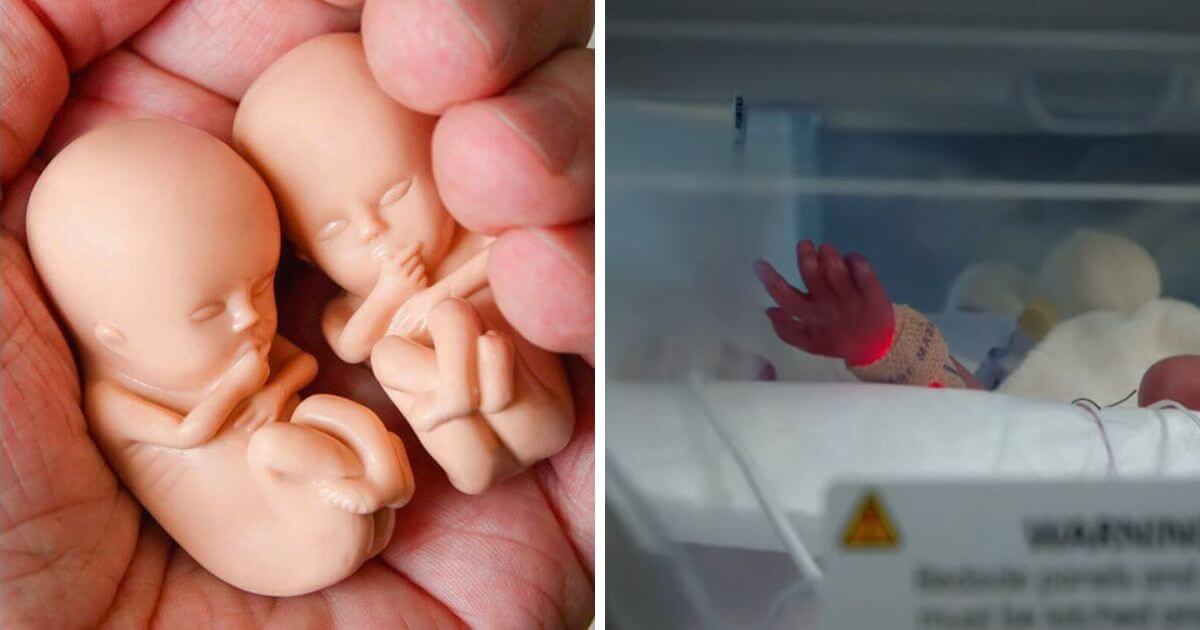A Norfolk mother gave birth to two premature babies, both under 30 weeks gestation, only 10 months apart.
Karen Patterson’s eldest son, Hunter, was born at just 28 weeks gestation in 2022, weighing only 1kg at birth. He had to spend 70 days in hospital being treated for sepsis and a form of meningitis.
Amazingly, just under a year later, Karen found herself undergoing the same experience with her second son, Jesse.
She said “Going to hospital pregnant but not leaving with your baby is truly heart-wrenching”.
“The first time it happened we just both felt such a sense of panic – I never thought I would have a premature baby and certainly didn’t think I would go on to have a second one”.
‘Miracle workers’
Jesse was born at only 29 weeks gestation. Because he so born so prematurely, he experienced a number of medical complications, including an operation to repair a bowel blockage and he required a stoma bag for a time.
Karen found herself spending mornings at home with Hunter before returning to the hospital in the afternoon to be with Jesse.
She explained that having had a premature baby in hospital before helped the second time around. “I immediately knew what was happening the second time, was familiar with the surroundings and knew all the doctors and nurses at the hospital who were truly miracle workers”.
Jesse had to spend 123 days in hospital before he was finally able to go home.
The boys’ mum said “My boys are fit, happy and healthy and they are our world – they make us proud every day”.
Karen ran the Brighton Half Marathon in order to raise money for the neonatal intensive care unit at the hospital where they received care. She said “The doctors and nurses there are just something else – these miracle workers make life possible and they make our dreams come true”.
Rates of survival for premature babies are continually increasing
Babies born even earlier than Hunter and Jesse are increasingly able to survive with the help of expert medical care. A 2004 Swedish study found that neonatal survival outcomes between 22 and 25 weeks gestation significantly improve when neonatal hospital staff take a proactive approach in the care of premature babies.
A 2008 study based on a neonatal intensive care unit in London also found that neonatal survival rates at 22 and 23 weeks gestation had improved. In 1981-85, no babies who were born at these gestational ages survived to discharge. However, by 1986-90, 19% did and this increased to 54% in the period 1996-2000.
A study in 2022 found almost four out of five babies born prematurely between 22 and 28 weeks gestation survive to discharge from the hospital. It found that from 2013 to 2018, with infants born between 22 and 28 weeks gestation, “survival to discharge occurred in 78.3% and was significantly improved compared with a historical rate of 76.0% among infants born in 2008-2012”.
Spokesperson for Right To Life UK, Catherine Robinson, said “Babies like Hunter and Jesse demonstrate how medical advancements are making it easier for premature children to grow up healthy and happy”.
“Legislators should pay attention to the stories of premature babies and their families, and should consider a reduction in the current abortion limit of 24 weeks, as more and more children are surviving at an earlier age”.












